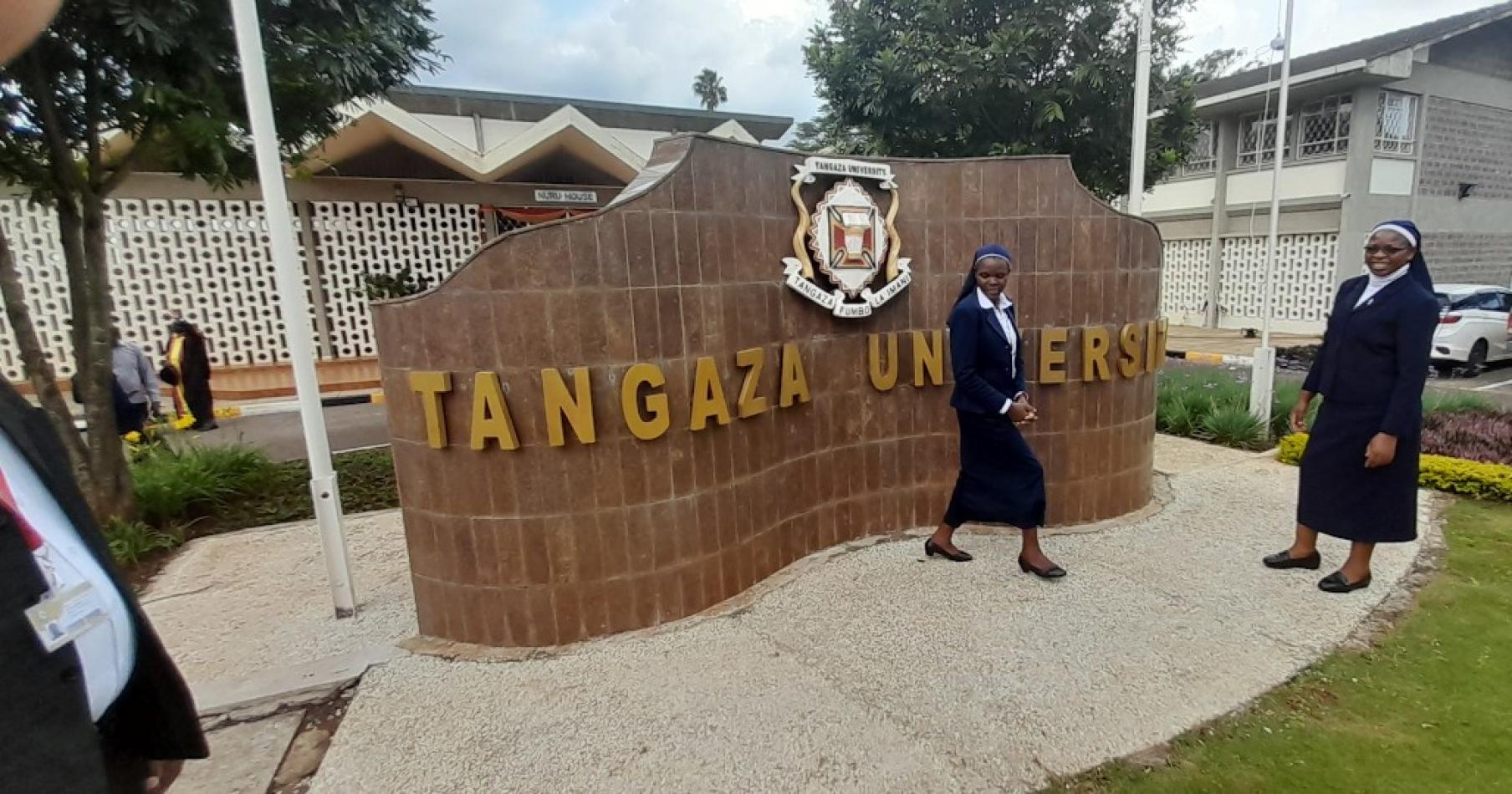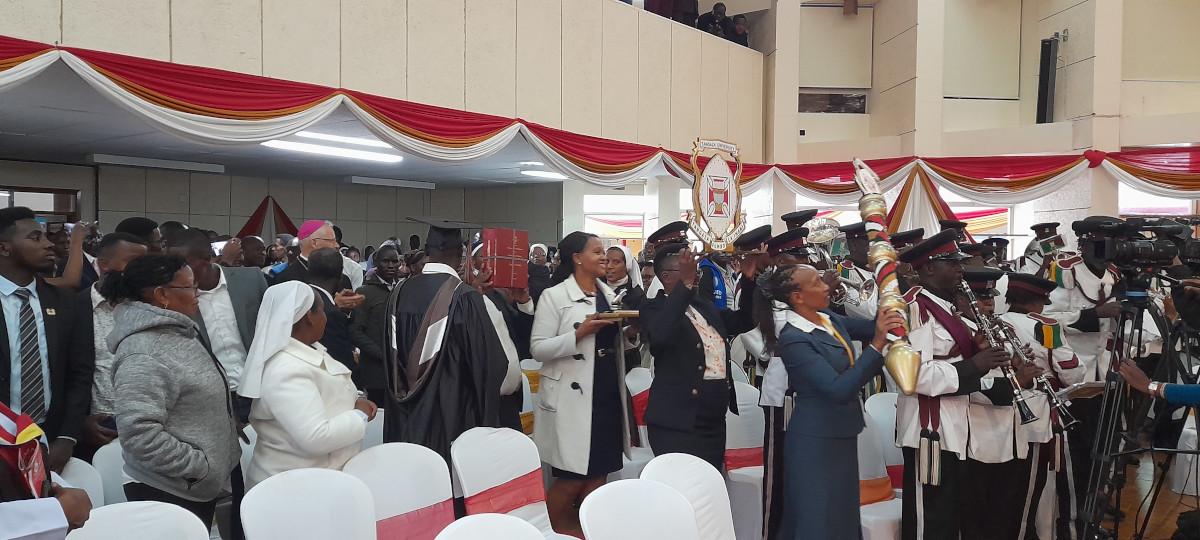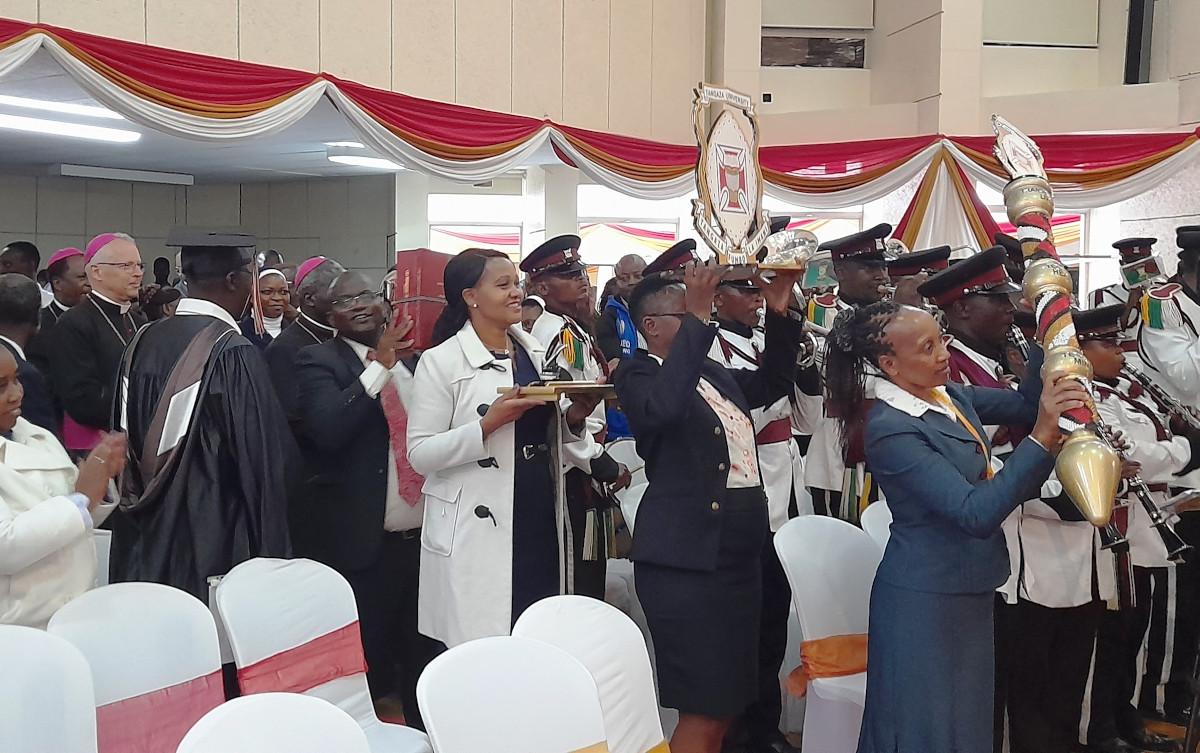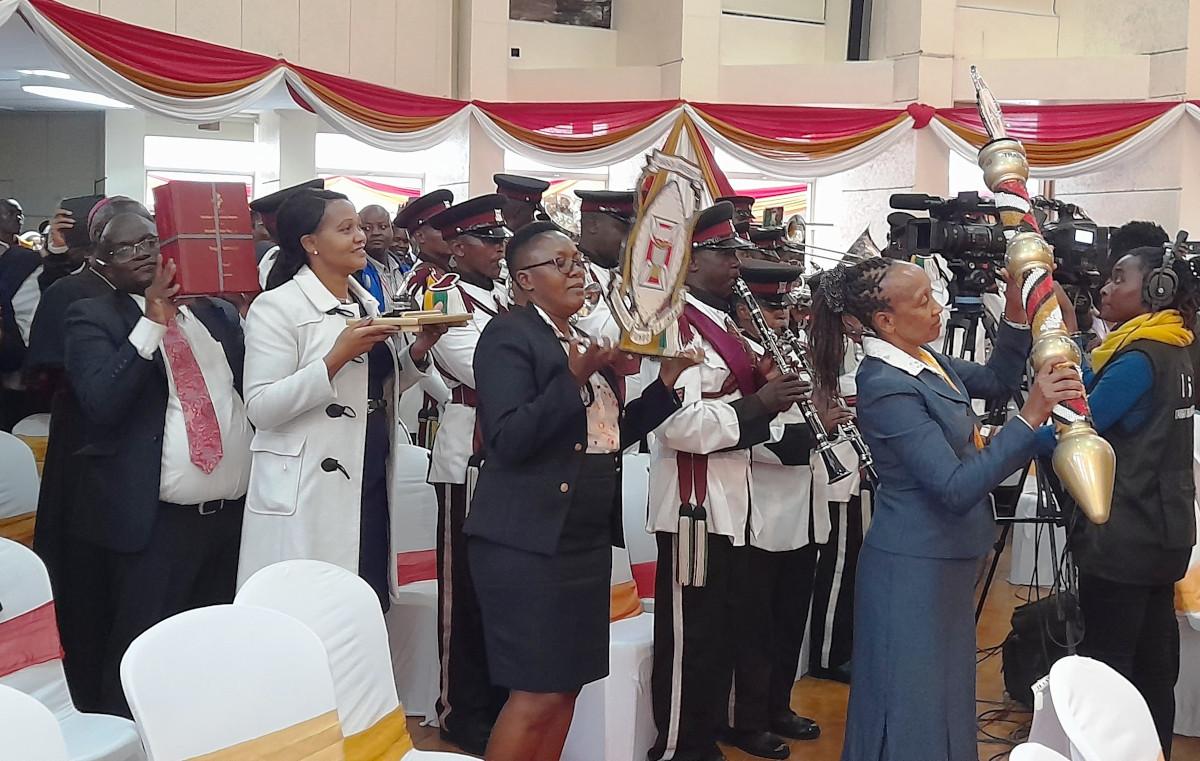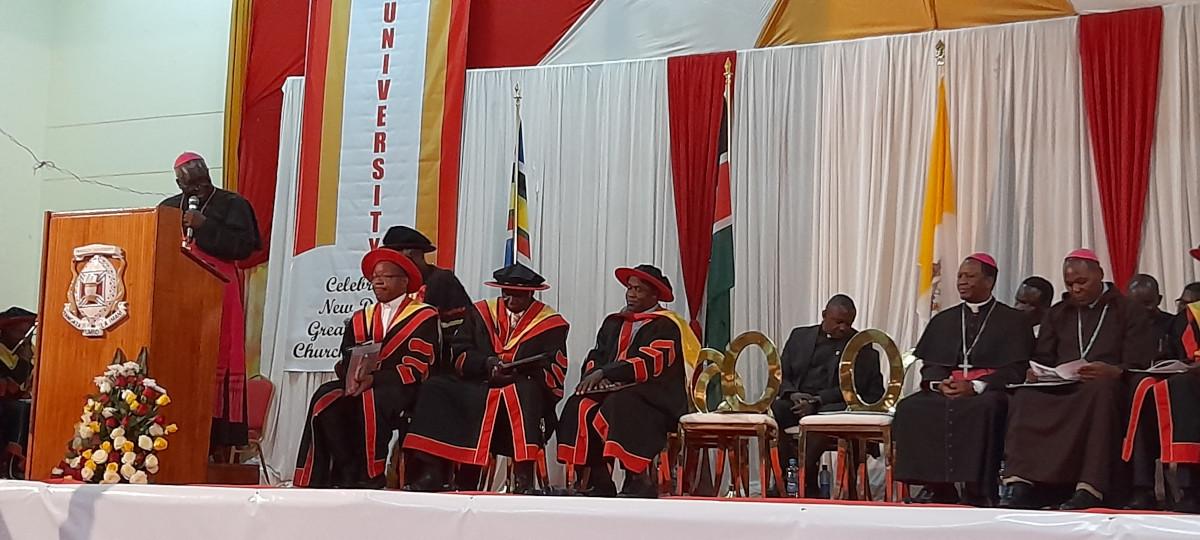Daniel Comboni
Comboni Missionaries
Institutional area
Other links
Newsletter
Saturday, May 4, 2024
Faculty members of Tangaza University (TU), the newly chartered Kenya-based institution of higher learning that is jointly owned by some 22 Institutes of Consecrated Life and Societies of Apostolic Life (ICLSAL), have to be keen on helping students overcome the temptation of aping others as “followers”. In his homily during the Thanksgiving Mass for the granting of TU Charter, Bishop George Muthaka emphasized the need for an education program that takes the formation of leaders seriously. [ACI Africa]
“Research has been done and it has been proven that all these institutions (in Kenya) are not forming leaders but are forming followers; we have become a society of followers,” Bishop Muthaka said during the Thursday, May 2 Eucharistic celebration at TU in Karen, Nairobi.
The Local Ordinary of Kenya’s Catholic Diocese of Garissa Diocese challenged TU faculty to take a different approach to the education program. He said, “I am therefore, urging Tangaza University to be serious in the business of forming leaders; don’t just form followers who will just ape what is happening in other places.”
The alumnus of TU, where he completed his Priestly studies in Theology, went on to caution, “Let’s stop copying other learning institutions and just focus on forming leaders according to what is required of us.”
“Train your students to analyse what is legitimate and what is valuable; let them not just be manipulated,” Bishop Muthaka said, faulting the tendency to find fulfilment in social media posts and their related likes and following.
To facilitate the realization of leaders rather than followers, the Kenyan-born member of the Order of Friars Minor, Capuchin (OFM Cap.) proposed that all students enrolling in TU be introduced to critical, logical, and analytical thinking that prioritizes listening, irrespective of their areas of specialization.
Specifically, he advocated for a syllabus that includes important figures in the field of philosophy and philosophical theology, including Plato, Aristotle, and St. Thomas Aquinas, alongside preliminaries of logic.
Such studies, Bishop Muthaka said, “will help learners to think critically about the big questions” rather than remain in a “local” mindset that can be “very mediocre”, characterized with simply “following people.”
In his May 2 homily at TU, Bishop Muthaka also emphasized the need for the newly Chartered institution of higher learning to foster Catholic education.
To explain this, he reflected on the April 1979 Message of St. Pope John Paul II to the National Catholic Educational Association of the United States, and underscored the need for TU to communicate the person of Jesus Christ.
“In order that the Catholic school may truly make its irreplaceable contribution to the Church and the world, the goal of Catholic Education itself must be crystal clear. Beloved sons and daughters of the Catholic Church, brothers and sisters in the faith, Catholic education is above all a question of communicating Christ, of helping to form Christ in the lives of others,” Bishop Muthaka said, referring to St. Pope John Paul II.
He urged TU leadership to ensure the fostering of Christian values, saying, “You are a Catholic institution and therefore, you have to participate in the mission of the Church, which is to bring about the kingdom of God. Therefore, you have to participate in that role and become collaborators with Christ the Teacher.”
“A Catholic institution has to prepare students for a dual citizenship; the heavenly city and also the earthly city,” the Kenyan Catholic Bishop said, referring to the Vatican II document, and added, “We are about personal sanctification and social reform in the light of human values.”
He continued, referring to TU leadership, “Your mandate is clear; you have to prepare people for the Kingdom of God. We want students who are holy; and when (they) leave Tangaza University, (they) are holier than (they) came.”
“We want students who will go out there to the society with values ... going to make a (positive) impact to the society,” the OFM Cap. member reiterated.
“We urge Tangaza to cultivate virtuous citizens, who can positively influence society,” the Catholic Bishop, who is a member of TU Council further said, and emphasized the need for the newly Chartered TU graduates to be “exemplars of excellence and values, poised to make a significant difference.”
He went on to laud TU leadership for facilitating the granting of the Charter, which he said will add more value to the academic profile of those who graduate from the Catholic institution.
“You'll receive official certificates from the university. With government recognition, your credentials will be unquestionable,” the Local Ordinary of Garissa Diocese since his Episcopal Ordination in May 2022 said about the institution that has been a Constituent College of the Kenya-based Catholic University of Eastern Africa (CUEA) since 1992.
The May 2 Charter award is the culmination of the process that started way back in 2013 following the change in the regulations around the governance of universities and constituent colleges as stipulated in Kenya’s University Act, 2012.
Established in 1986 as Theological Centre of Religious with the aim to form members of ICLSAL for ministry in the Church and society in Africa, TU was blessed and formally inaugurated on 30 October 1987 by the Servant of God Maurice Michael Cardinal Otunga, then Archbishop of the Catholic Archdiocese of Nairobi.
The administratively autonomous Karen-based university has been offering certificate, diploma, and undergraduate programs in most of its institutes; a masters program in education, ethics and organizational leadership, social transformation, social ministry, business administration, African studies, Counselling Psychology, spirituality and religious formation, social entrepreneurship and sustainability, and early childhood assessment and intervention; and a doctoral program at the Institute of Social Transformation (IST).
With faculty and students from well over 40 countries and more than 100 ICLSAL, TU is a culturally diverse institution of higher learning that has “Teaching Minds, Touching Hearts, Transforming Lives” as its educational philosophy.
[ACI Africa]

